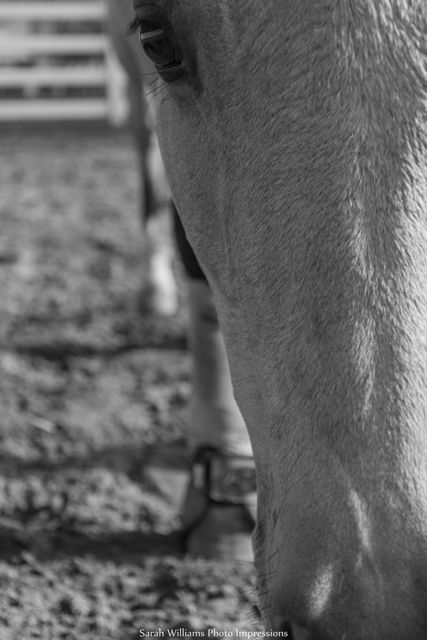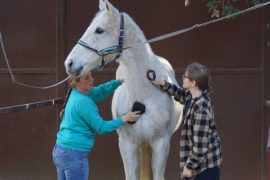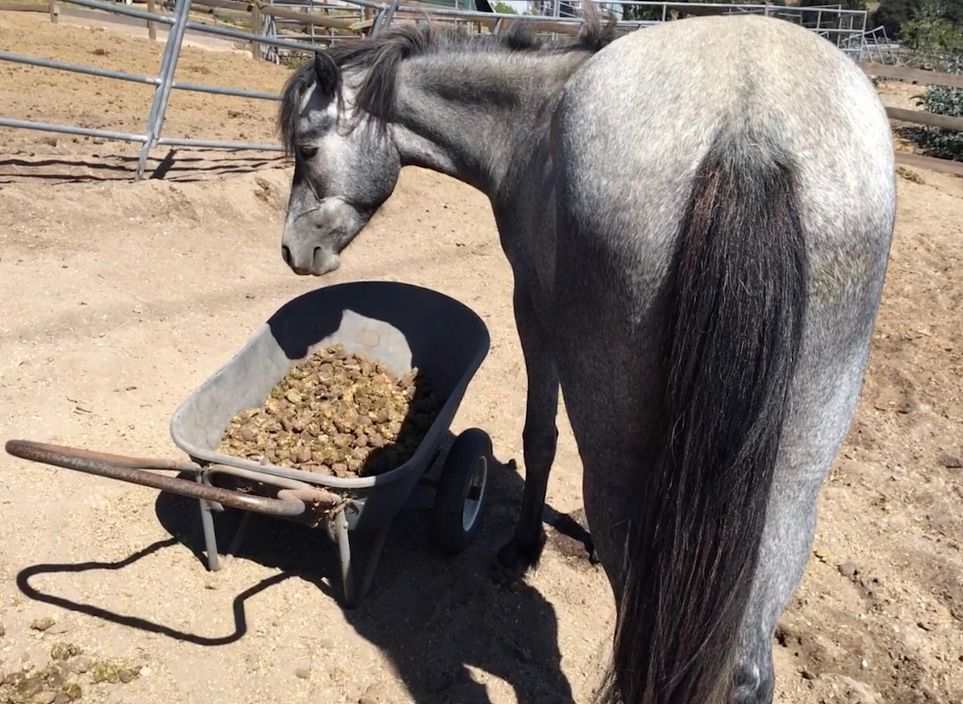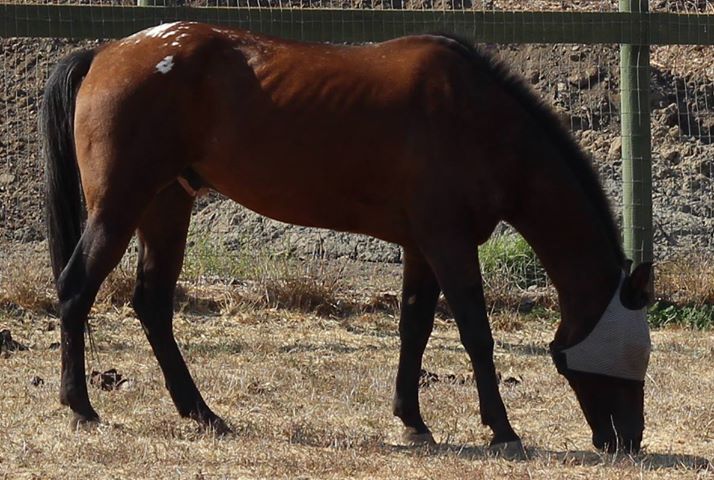We all love our horses, and in turn we all want the best for them. For many of us, our horses are like our children, our best friends and our therapists all rolled into one, so naturally, we care for them in the best way that we know how. We read all the latest information, scour magazines and journals for the best supplements, buy “better tack” or “more comfortable saddle pads”, all in an effort to appease our desire to make sure that, as horse owners, we are doing right by our equine partners. One of the things, though, that seems to get overlooked by many is also one of the simplest things that we can do to improve our horse’s quality of life. What is this thing, you ask? Horseplay, of course.
“Horseplay” is a broad title, and it can mean a lot of different things, but to understand it at its most basic form, we must take a short look at the psychology of the horse. In the wild, horses live in herds with defined hierarchies; they spend their days grazing, moving, and focusing on a combination of survival and social skills. With that in mind, lets take a look at what our own horses lives look like: They live in confinement (even those in pastures don’t have the freedom that they would have in the wild), they are typically separated from other horses by fences or put into small social groups instead of the larger ones that they would by accustomed to in the wild, they get fed at designated times during the day (having to rely on a human to give them food), and they perform a job (showing, trail riding, pulling carts, etc.). These are two starkly different realities.
I’m not advocating for turning our horses back to nature, instead, I’m advocating for a break in the routine that we relegate our equine partners to. I see many people who arrive at the barn, greet their horse, tack up, ride, groom and then put their horse back into his stall with a pat on the neck and a treat…they do this several times per week, and the rest of the time the horse is left in his stall or paddock waiting for the next time he will be released. It’s not that his owner doesn’t want for him to have a good and happy life, but rather that he/she hasn’t given due consideration to what is happening inside the horse’s mind.
I realized a long time ago that adding an extra twenty minutes to my routine at the barn could have a massive impact on my horse’s mindset.
What do I do with those twenty minutes? I turn my horse out into the arena after I ride and let her do “horsey things”. She rolls, stretches, walks around the edge of the fence line grazing on what grass she can reach, etc. When it’s time for me to retrieve her, I bring along a couple of carrots and play a few little games of follow the leader, or “let’s learn to bow”. I stand with her, walk with her, and I show her that not all of her time outside of her stall will be spent “working”. I also choose several days out of the week where I do nothing but turn my horse out into the arena. I give her about 45 minutes to meander around, buck, roll, run…whatever she likes. This is her time, and she deserves to have it.
There are a lot of trainers and clinicians out there who advocate for “horseplay”, but I find that many of them are a bit too rigid with their routines. I’m not looking to become part of my horse’s herd; I still want her to know that I am the alpha in the relationship, but I also want her to know that I understand she needs time to be a horse and not just a “workhorse”. It doesn’t take following a set of “games” to give your horse that extra reprieve he needs from his routine (though games can be fun, and in certain situations beneficial); just a few extra minutes after a ride and a couple days out of the week with only the horse’s relaxation and entertainment in mind can make more of a difference in our horses lives than all of the newest and greatest supplements, equipment, and training techniques.




